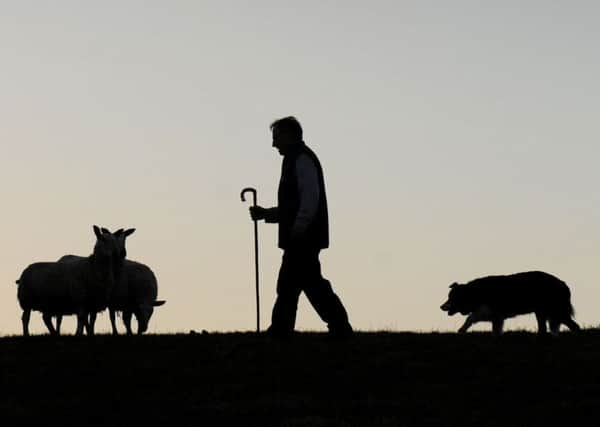New code launched as farming tenant amnesty opens
This article contains affiliate links. We may earn a small commission on items purchased through this article, but that does not affect our editorial judgement.


The amnesty, part of the recent Land Reform Act, will give landlords and tenants three years in which to rectify any outstanding issues around notification of tenants’ improvements which should qualify for waygo compensation, and should help take the heat out of an area which has been one of the major sources of friction in tenant/landlord relations.
• READ MORE: Farming news
Tenant Farming Commissioner (TFC) Dr Bob McIntosh, who drew up the document, said: “The code is intended to help landlords and tenants work together in a fair and transparent manner to agree on a definitive list of tenants’ improvements which may be eligible for compensation at waygo.”
Advertisement
Hide AdAdvertisement
Hide AdHe said that while anyone found being in breach of the code risked being the subject of a complaint upheld by the TFC, those who followed its principles and who acted reasonably did not.
McIntosh added that, in broad terms, disagreements should be resolved by dialogue, mediation or arbitration: “Failure to reach agreement or engage in mediation will not in itself necessarily constitute a breach of the code but the TFC may decide that an obstructive or unreasonable attitude by either party may constitute a breach.”
Welcoming both the amnesty and the code, NFU Scotland president Andrew McCornick approved of the focus on mutual agreement.
Urging parties to enter into discussions with the right frame of mind, he said the amnesty represented a major opportunity for landlords and tenants to get their houses in order with regards to compensation for improvements and also in the context of future rent reviews.
But he also warned that the amnesty only lasted three years, stating that the opportunity should be grasped with both hands and that discussions should begin swiftly.
• READ MORE: Farm tenants and landlords urged to use new amnesty
David Johnstone, chairman of Scottish Land & Estates, said his organisation believed wholeheartedly in the amnesty for tenants’ improvements.
Advertisement
Hide AdAdvertisement
Hide Ad“We agree that every effort should be made to avoid disputes on improvements ending up in the land court and support the Tenant Farming Commissioner’s recommendations in seeking resolution through mediation or arbitration,” he said.
“We are therefore happy to offer our support to the code of practice published today and believe the industry can embark upon this amnesty with confidence.”
Scottish Tenant Farmers Association chairman Christopher Nicholson said: “In the past tenants have often been reluctant to exert their rights for fear of upsetting landlords.
“This should no longer be the case and it will be expected that landlords and tenants will co-operate with each other and manage to resolve any disagreements amicably without having to resort to formal methods of dispute resolution such as the land court.”